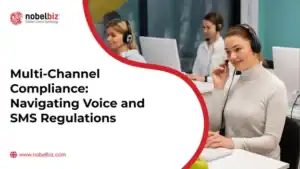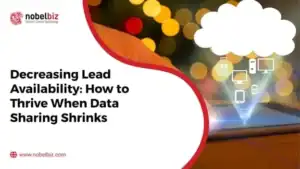We tend to believe that legal entities that follow the rules are safe from being sued, or at least from any liability during a presupposed class-action lawsuit. The recent Ryan Odom v. ECA Marketing, Inc. case is here to prove just how wrong we are and just how careful companies need to be when guarding themselves and staying TCPA-compliant.
The Case
The TCPA states that a party must “willfully and knowingly” violate the statute in order to be held liable by a court. In the current case, the defendant only placed a single errant call. The question then being raised is whether one call is sufficient evidence to satisfy the intent standard set by “willfully and knowingly.”
In the TCPA class action lawsuit presented before the United States District Court for the Central District of California, on August 20, 2020, the plaintiff alleges that the intent standard is satisfied. Mr. Odom, the accuser, filed suit after receiving just one phone call from ECA Marketing in which an unsolicited, prerecorded message advertised a book and video package.
According to The Court, the case made by Mr. Odom infers that other consumers got the same prerecorded message he got, and that:
“The Defendant has a practice of making pre-recorded calls to advertise using an automatic telephone dialing system which places calls without the need for human callers.”
The plaintiff repeatedly accused ECA Marketing of violating the TCPA in negligent, willful, and/or knowing manners.
The Concession
In an interesting turn, the defendant, ECA Marketing made the concession that it had indeed been negligent of the TCPA. However, this claim should not have presented any form of liability because it is not a statute presented within the TCPA – i.e. it’s not a crime to be negligent.
At the same time, the inference made by the Defendant that ECA Marketing used pre-recorded messages in a repeated fashion is what tipped the scale. Mr. Odom did not claim the accused made multiple calls, nor did he claim he was subsequently called after he objected – he was not. The Defendant argued that one call is not sufficient proof of intent, a point with which The Court agreed:
“The Defendant is correct that a single automated phone call, without more, may fall short of willfulness under the TCPA.”
The Inference
However, the case turned after a statement by Judge Jesus G. Bernal, who noted that the motion to dismiss Mr. Odom’s claim needs to take into account the fact that the plaintiff raised a “well-pleaded factual allegation” that there is a “plausible inference of liability.”
The result of this statement was that the Court allowed the case to proceed, leading to the following analytical framework of “plausible inference”:
- That it was ‘logical for [Odom] to infer that Defendant was using an automatic dialing system to place the pre-recorded robocall he received—automated messages are evidence of automated calls;”
- That “by nature, automatic dialing systems produce a vast volume of calls, more than an individual person could dial;”
- That “it is more than plausible that others received the same pre-recorded message;”
- That “the plausible inference that many consumers received identical automated telemarketing messages from Defendant could satisfy the standard for willfulness under the TCPA.”
There is a huge difference between “we made one bad call” and “we willingly violated the TCPA.” But this is what this Court and this judge decided. Is it the right decision? We don’t know. Let us know your opinion in the comments – it will certainly lead to an interesting discussion.
Setting a Precedent
But going back to what we said at the beginning, this case clearly demonstrates that one bad call is more than enough to violate the TCPA. It may be a mistake, it may be negligence, but that single call can demonstrate the existence of an ATDS (Automated Dialing System) that has been used illegally, even if it was used a single time.
Shielding Your Business
That is why contact centers must take the necessary steps to guard their business thoroughly and unequivocally.
Our SHIELD system, part of our Telecom Carrier Network deal, is the ideal way to guard your company against liability. It allows for multiple filters including time zone and frequency and gives you the tools to configure compliance rules based on your business model.
The best part? All these filters are on a Carrier level and they come together with the most reliable and redundant carrier network in existence – and the only one designed specifically for contact centers. Learn more on our carrier network page, or fill in the form on this page.

Andrei is an experienced marketing professional specializing in propelling growth for both B2B and B2C companies. Proficient in streamlining marketing operations and enhancing lead and customer experiences through SEO and marketing techniques.






